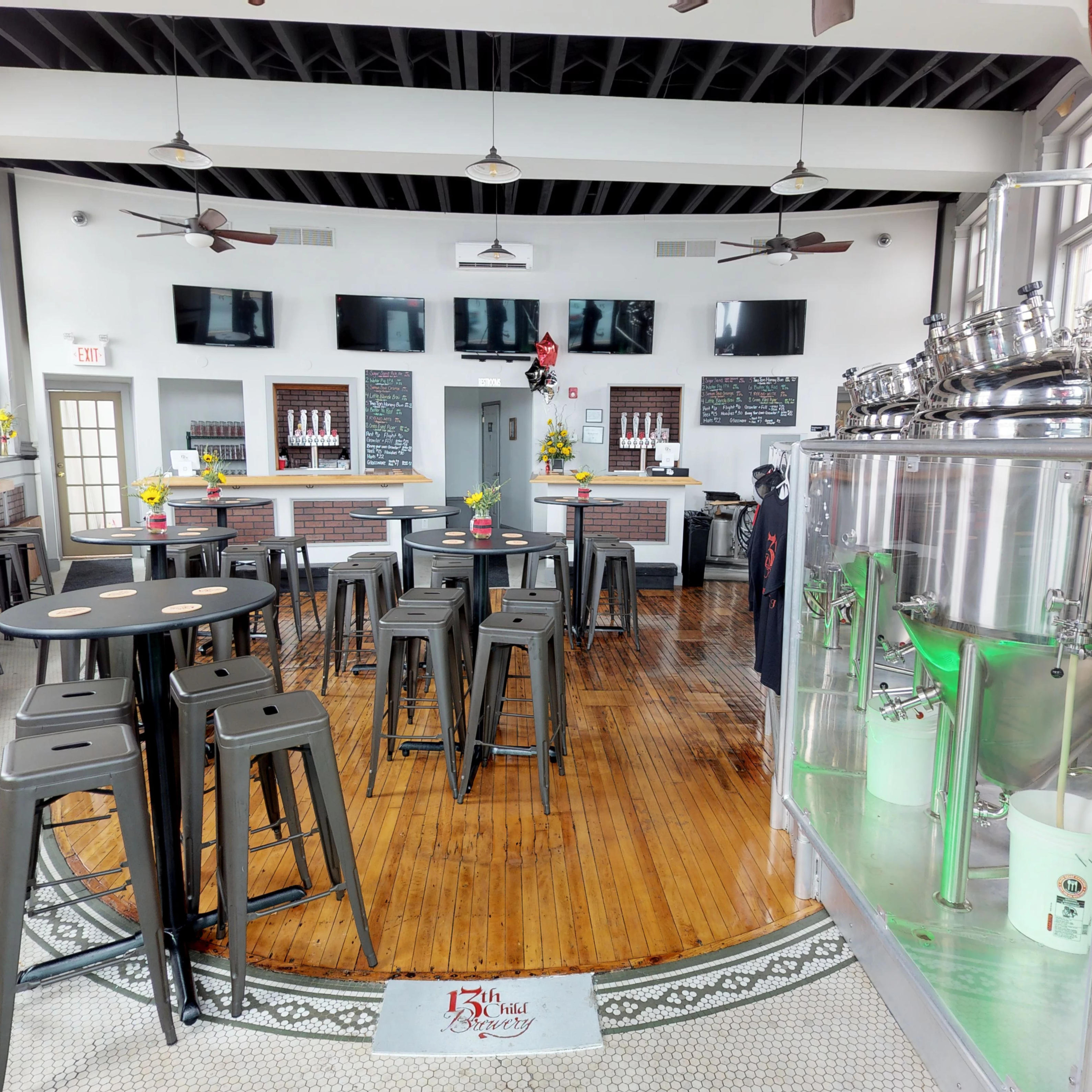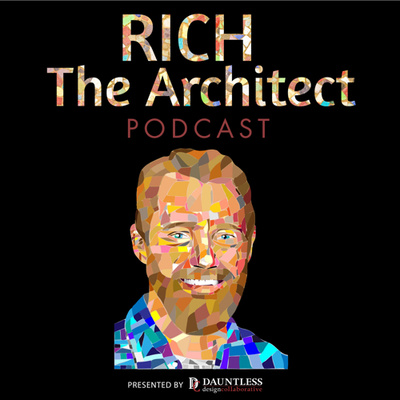Discover Rich the Architect
Rich the Architect

Rich the Architect
Author: Rich the Architect
Subscribed: 32Played: 191Subscribe
Share
© Rich the Architect
Description
Welcome to the Rich the Architect podcast. Yes, I am an architect and this is about architecture and other interests I have. Sometimes I’ll speak about buildings and design, sometimes its music and fighting, or other things.
85 Episodes
Reverse
The Hidden Sands Brewery was a different type of brewery project in that I didn't work on the inside of the brewery at all. The client had fired the previous architect and needed to get drawings for railings that were leading up to the brewery entrance.
This episode launches a new series of episodes related to breweries and the potential cannabis industry in New Jersey. In this episode I talk about my project experience with the 13th Child Brewery here in my home town of Williamstown, NJ.
Recently my team finished up the drawings and specifications for a high school auditorium renovation project. In this episode I cover how I got hired for this project and each of the steps that were taken to take this project from an idea the school had to the finished drawings.
I remember the day I got laid off from the last job I ever had, June 13, 2008, on the 10 year anniversary of that date. Also get in to some project I’ve been working on lately, along with some possible future projects in the pipieline.
As I developed my firm principles I started to think that I should also use this as a basis for finding ideal clients. When networking or interacting with people I have started to think if I'm spending my time wisely. In this episode, I'm proven wrong by questioning if i should go to an event, and I also start considering to offer some Revit software advice, but not for free.
Now that I've identified my principles how do I test them on a regular basis. On this episode I go over how I have a weekly meeting with myself (coffee and breakfast provided by my boss, oh wait that's me) to identify certain situations in the past week and test to see which principles were used. Then I go over how I may be able to use these principles to evaluate an ideal team member to work with, whether its an employee, consultant, or client.
Combining the last two principles, which are Principle 7 (Quick Communication) and 8 (Follow the Follow). Both work well together because I want to get information to others as quick as possible, and once that information is in their hands I want to make sure the next steps are being made by others.
The details of a project can be broken down into not only the design of a project, but also the design of the process of a project.
The daily grind of running and operating a business can take its toll over time, so making sure I'm fresh and ready to go is very important. I go over how I can keep it fresh on business operations and processes, along with how I do it on a daily basis.
As a younger professional I worked with a senior project manager who would tell me to always look at the pros and cons of whatever is involved in the design of a project. Today, I still look at that and sometimes it can help me determine if a client is a good fit or not. I also offer my opinions of made up deadlines for designing for the environment that is a sure sign of an groups or individuals pushing an agenda rather than an idea that is beneficial to all.
With my third principle, it's fitting that this is being released in August, since this is the month most people do slow down. I came up with this principle in response to how I've seen stress being created in project with unrealistic expectations to project timelines and expected quality of product. Slowing down has led to better quality and less stress, and I go into detail how I deliver that.
The second firm principle is Simplify the Complex. This principle's basic premise is to take any project and break down into smaller, digestible parts. I give a few examples here, the first is how a project used phasing to simplify a lab renovation project I worked on for construction coordination modeling. I also go into how I break apart a typical residential project into design and approval drawings, and then simplify the fees charged to match these deliverables.
For the last few month’s I’ve been taking a course called, Building a Better Company, by Alex Gore of the Inside the Firm Podcast. The course is aimed towards professionals in the AEC industry and has been super helpful. One of the core ideas is to develop a set of principles for yourself or your business, which I want to cover in the next few episodes. Here I cover my first principle, which is Find a Way.
Had an interesting response to a recent project proposal recently, which the title of this episode is a loose quote. A response like this warrants a no response from me, but this response also signifies a trend I'm seeing this year with my proposals related to years past. Proposal requests are looking similar but the number of projects that have started from these proposals is significantly less this year. Is this a sign to come?
It's been a bit. When I say a bit I mean a year and some time. I'm back now with a new approach towards the podcast. I'm looking for guests and my hope that you can give me some suggestions. Looking for people I find interesting and can be curious. Happy to be back and look forward to getting this rolling again. See you in a few weeks once I get back from a family trip.
Have I been operating my company for the past 12 years in love with the idea of freedom? What is freedom in a business sense?
This past week I finished reading 'Company of One' by Paul Jarvis. In the latter chapters he discusses operating with ego versus operating with purpose. I go into that and reflect back on my 12 years in business and realize that I've operated more with my ego. I then think about how anyone can operate more with purpose in the long and short term.
In the book, 'Company of One' by Paul Jarvis, he speaks about how collaboration is more effective with less instances of communication. I expand on that topic, which I agree with, with two real world examples I experienced where more communication caused less productivity.
Let me know your thoughts on this topic. Do you agree with my thinking, or is there a better way to be productive or creative with more communication.
Tyler Ardron is the Vice President of Risk Reduction Plus, which provides flood, homeowners, and other insurance for home and property owners across the country. We dive deep (pun intended) into flood insurance and how rating for this insurance relates to the base flood elevations and other factors with properties near or next to the water, whether they are oceans, rivers, or lakes.
If you have any questions for Tyler or want more information related to flood insurance you can reach his company at:
https://www.riskreductionplus.com
As I looked into growing the firm recently I came across a book that hit a nerve with me. The book, 'Company of One' by Paul Jarvis, speaks about how growing for growing sake isn't necessarily the best business approach, and doesn't actually lead to overall happiness in life. While I've only gotten through about half of the book so far, in this episode, I speak about passion in business and how the book considers passion whimsical and often leads to business failure. Then I follow it with a real world example from one of my clients, and wrap it up with where I'm going to go from here.
Here's an Amazon link if you're interested in purchasing the book:
https://www.amazon.com/Company-of-One-Paul-Jarvis-audiobook/dp/B07KFNRRTS/ref=tmm_aud_swatch_0?_encoding=UTF8&qid=1626904862&sr=8-1










